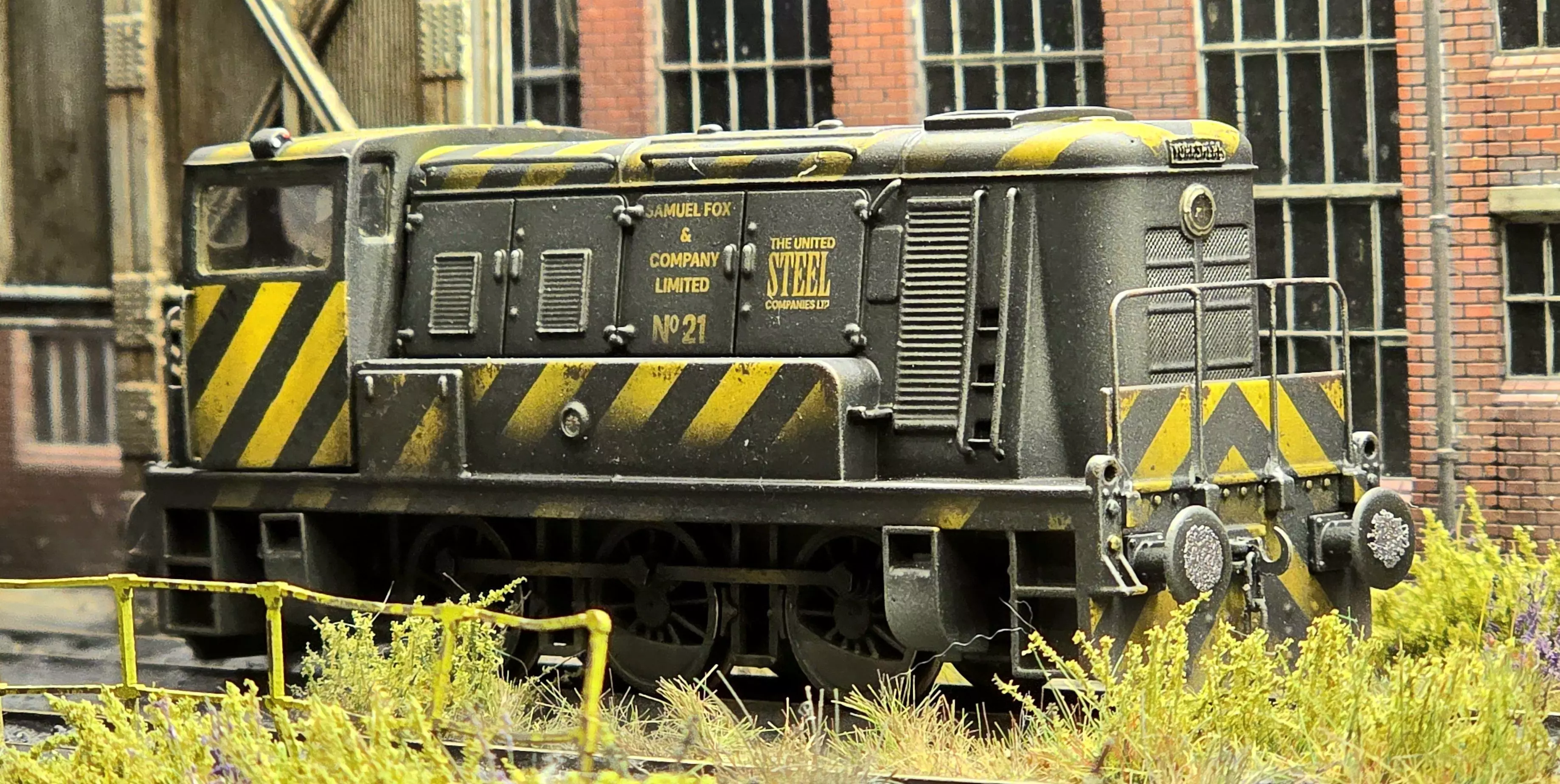1/8
In the mid-1950s, the Yorkshire Engine Company produced a small number of 400hp ‘DE4’ 0-6-0DE shunting locomotives at their Meadowhall Works. A majority of these were destined for Stocksbridge Steel Works to the North-West of Sheffield.
This model is primarily based on ‘No.21’, Works No. 2528, built in 1954 for Samuel Fox & Company, Stocksbridge. The reason for this choice is that in around 1970, this loco made its way to Orgreave Coking Plant – the subject of one of my own micro/cameo layouts, and incidentally the site of which is also where my partner and I now live (there is something oddly satisfying that this model was drawn up in the exact spot where the actual loco once worked!).
Interestingly, the loco was not a huge success at Orgreave, being unable to propel the loaded coke hoppers up the 1:28 incline to the exchange sidings, despite having the same HP and tractive effort as the resident Janus locos.
No.21 was still wearing its overall black/wasp stripe United Steels Stocksbridge livery when photographed on site in 1972. At some point after that, it was repainted into the distinctive Orgreave green colour, but by 1985 it was sat on the scrap line awaiting the torch.
As is tradition when it comes to industrial loco types, it appears few of these locos were alike and sported subtle differences which may be spotted when doing your own research into whichever loco you wish to reproduce. There is also very little/no information or photos regarding the cab interior or roof arrangement. With this in mind, regrettably these areas are best guesses from awkward photos, and referencing other locos produced by YEC. I hope you’ll agree, the model still very much ‘looks the part’.
The bodyshell is designed to be a drop-in fit for the Oxford Rail/Golden Valley Hobbies YEC Janus chassis. This chassis is almost identical to the one used on the DE4 right down to wheelbase, wheel diameter, and even brake gear arrangement so isn't too much of a compromise. I seem to recall when the Janus was released, some had a flywheel at each end of the motor, whereas some had just a single flywheel. Please check your chosen donor as the twin flywheel version WILL NOT FIT this bodyshell without removing the end flywheel. Tbh, I haven't seen any twin-flywheel chassis in the wild, so it's possible that this was changed prior to full production.
Due to the height of the bonnet, there's loads of room inside for DCC and/or sound fit, stayalive, extra weight etc.
To complete, this model will require 0.35mm-0.5mm wire for the various handrails. The model has small dimples designed to aid in drilling out the holes for these. See photos of the model/protype for locating references. You will also need to cut some 28.5mm x 7mm (or thereabouts) rectangular end panels which sit above the buffer beam at each end. I made mine from 0.75mm thick plasticard. Windows can be added using clear acetate sheet.
The cab, buffers, and sandboxes are separate prints to aid in getting the best quality finish. The cab has a sacrificial panel at the front which should keep thigs nice and square during the printing process.
2 versions are included - the first has a full bufferbeam and is designed to take Smiths 3-Link couplings. The second has a slot cut into in the bufferbeam to allow a tension lock coupling to be inserted into the NEM pocket on the chassis.
REVIEWS & COMMENTS
accuracy, and usability.








